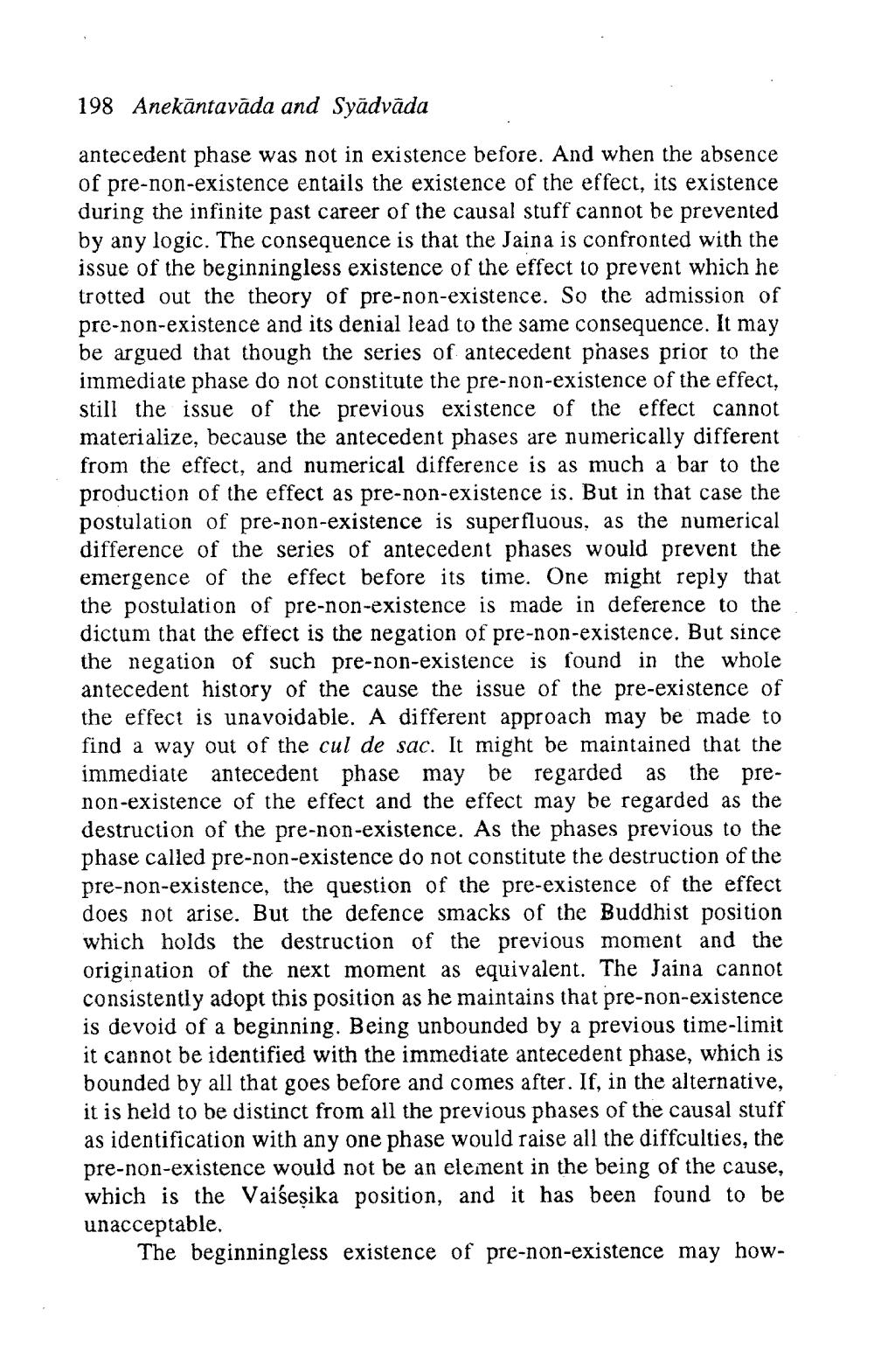________________
198 Anekāntavāda and Syādvāda
antecedent phase was not in existence before. And when the absence of pre-non-existence entails the existence of the effect, its existence during the infinite past career of the causal stuff cannot be prevented by any logic. The consequence is that the Jaina is confronted with the issue of the beginningless existence of the effect to prevent which he trotted out the theory of pre-non-existence. So the admission of pre-non-existence and its denial lead to the same consequence. It may be argued that though the series of antecedent phases prior to the immediate phase do not constitute the pre-non-existence of the effect, still the issue of the previous existence of the effect cannot materialize, because the antecedent phases are numerically different from the effect, and numerical difference is as much a bar to the production of the effect as pre-non-existence is. But in that case the postulation of pre-non-existence is superfluous, as the numerical difference of the series of antecedent phases would prevent the emergence of the effect before its time. One might reply that the postulation of pre-non-existence is made in deference to the dictum that the effect is the negation of pre-non-existence. But since the negation of such pre-non-existence is found in the whole antecedent history of the cause the issue of the pre-existence of the effect is unavoidable. A different approach may be made to find a way out of the cul de sac. It might be maintained that the immediate antecedent phase may be regarded as the prenon-existence of the effect and the effect may be regarded as the destruction of the pre-non-existence. As the phases previous to the phase called pre-non-existence do not constitute the destruction of the pre-non-existence, the question of the pre-existence of the effect does not arise. But the defence smacks of the Buddhist position which holds the destruction of the previous moment and the origination of the next moment as equivalent. The Jaina cannot consistently adopt this position as he maintains that pre-non-existence is devoid of a beginning. Being unbounded by a previous time-limit it cannot be identified with the immediate antecedent phase, which is bounded by all that goes before and comes after. If, in the alternative, it is held to be distinct from all the previous phases of the causal stuff as identification with any one phase would raise all the diffculties, the pre-non-existence would not be an element in the being of the cause, which is the Vaiseșika position, and it has been found to be unacceptable.
The beginningless existence of pre-non-existence may how




